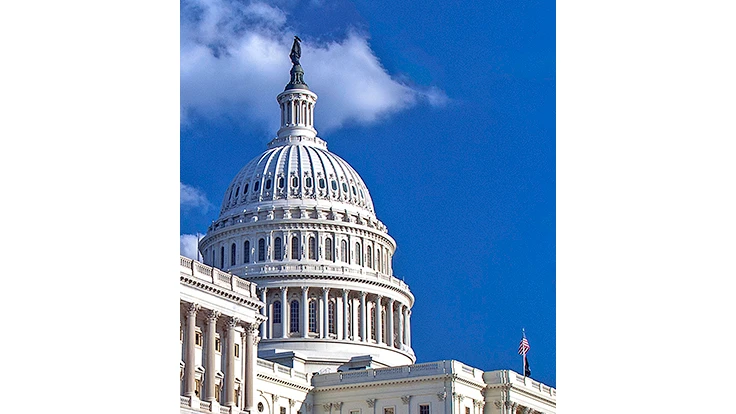
U.S. Citizenship and Immigration Services has received enough petitions to reach the 33,000 cap of H-2B workers for the first half of 2017.
Jan. 10 was the final receipt date for H-2B petitions for workers to start before April 1, 2017. Any petitions received after that date will be rejected. The cap for the first half of 2016 wasn’t reached until March 15. The full cap was reached May 12.
The cap for the second half of 2017 is also 33,000.
Efforts to return the exemption.
The National Association of Landscape Professionals has been in conversation with members of Congress, particularly about the returning workers exemption. However, since Congress isn't expected to address the budget until late April, any action taken will be too late to help landscape professionals.
"It's a very unpredictable issue," said NALP Vice President of Government Relations Paul Mendelsohn. "We're still trying to figure out exactly what the new administration means for H-2B."
Over the last week, NALP has met with Senator Thom Tillis and Congressman Andy Harris to address the returning worker exemption as a standalone bill, rather than going through the appropriations process. The two representatives have each sponsored a bill to bring back the exemption and both have indicated that they plan to reintroduce the bills.
"Obviously that would be a preferential fix for us," Mendelsohn said. "It's not politically very feasible to continually try to stick something into the appropriations budget process."
Mendelsohn also believes a standalone bill would be a good opportunity to keep the H-2B program out of the overall immigration reform debate. "We really think this is a workforce issue and not something that really impacts the whole issue of immigration," he says. "There may be others who disagree, but our position is that this has nothing to do with immigration because the individuals who are coming in are, by law, only coming on a temporary basis and return to their country of origin at the time their visa concludes."
NALP is working with the H-2B Workforce Coalition, which includes AmericanHort, the American Hotel and Lodging Association, the Outdoor Amusement Business Association and others to pass this legislation.
The impact on landscapers.
Jeff Rak, president of Land Creations Landscaping in Columbia Station, Ohio, has been using the program for 15 years. His petition is in the system, but he hasn't heard if he will be receiving the six workers he requested.
"If I have to replace the six H-2B guys that I have, its going to cost us a lot of time on training and our production will suffer," he said. Some of his workers have been with his company for 14 years. "We have been using the program for about 15 years now and I can’t understand how we can’t get this program fixed."
Rak has visited Washington D.C. several times to lobby for the program but said that it always "falls on deaf ears."
"It is very disappointing to have to go through this year after year," he said. "I should be focusing on running my business and not worrying about if or if not we will be getting our guys."
There have been several changes to the H-2B program recently. Last year, Congress decided not to reauthorize the returning worker program, which exempted guest workers from the previous three years from counting toward the H-2B cap.
And in an effort to streamline the process, the Department of Labor no longer requires supporting documentation proving that a contractor’s need for temporary workers is temporary.
What you can do.
"We will be diligently working to address the issues within the H-2B program both for the short term as well as long term, and hopefully be able to, with the administration and a change in philosophy, find a working solution that is business friendly and permanent rather than have uncertainties associated with it," Mendelsohn said.
Mendelsohn recommends getting in touch with members of Congress and personalizing the issue through first-hand accounts. "The more we're able to humanize the issue and take it out of an abstract concept into the real world, the better off we're going to be," he said.
For more information and resources, visit the NALP website.
Get curated news on YOUR industry.
Enter your email to receive our newsletters.Latest from Lawn & Landscape
- Project EverGreen helps revitalize Milan Park in Detroit
- Trex Company wins Product of the Year, Judges’ Choice Winner at Environment+Energy Leader Awards
- General Equipment & Supplies in Fargo adds Takeuchi equipment
- Mariani Premier Group acquires Hazeltine Nurseries
- EnP Investments adds Mark McCarel as Northeast territory sales manager
- Our April issue is now live
- Ready or not
- Tribute to an industry guru





